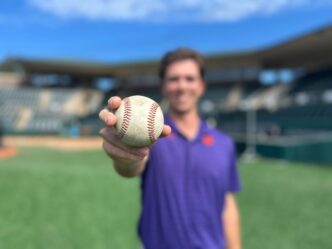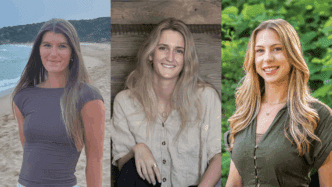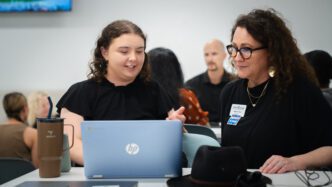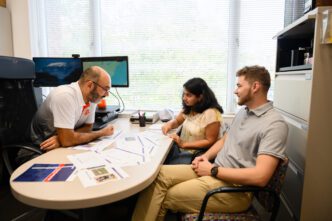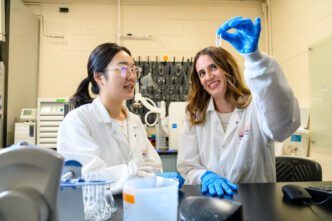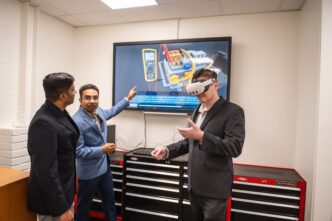By Katie Gerbasich
Baseball has evolved over the last decade to focus beyond what happens on the field of play, with over 200 stadiums installing Trackman technology to provide ball tracking data. This information allowed Department of Bioengineering graduate student Connor Moore to capitalize on the intersection of sport and biomedical engineering to develop his research on monitoring injuries at the pitch level.
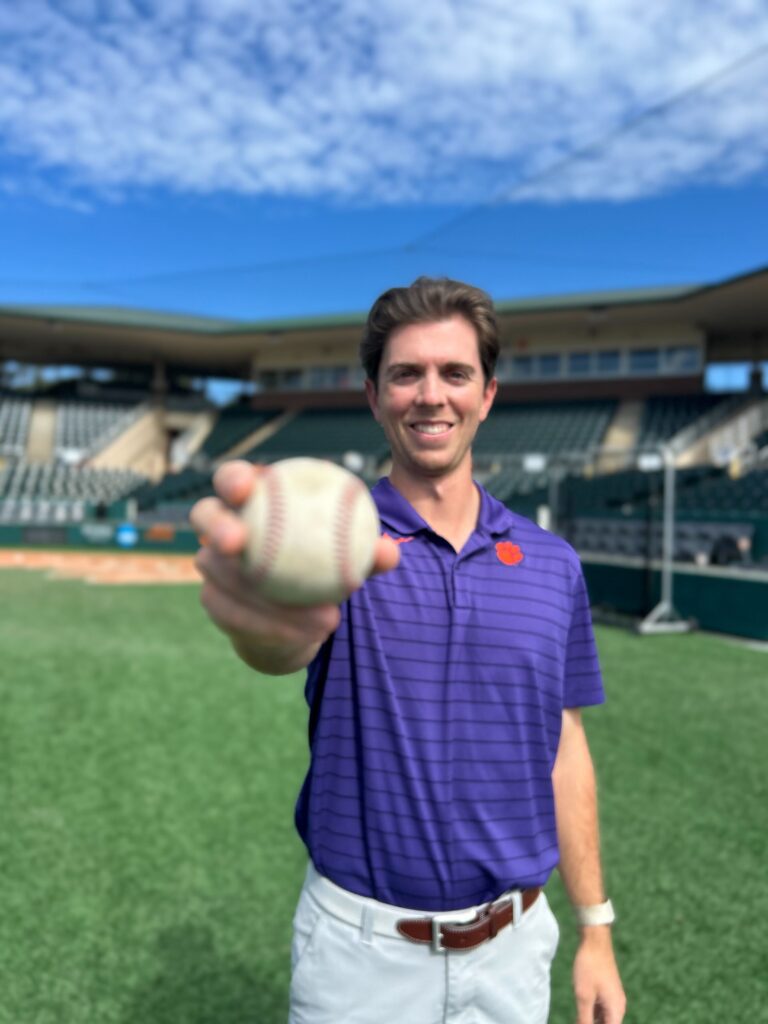
Defending his Ph.D. dissertation this fall, Moore’s work aims to monitor workload in pitchers better than pitch counts. He explained how the industry standard is to count the number of pitches thrown concerning the risk of injury. However, this is not always the best way to prevent injuries.
“We wanted to do something better,” Moore said. “It is a comprehensive look at how you use ball tracking to monitor performance, but then branching out into using it for health monitoring.”
Funded by a collaboration grant from Clemson’s Robert H. Brooks Sports Science Institute in 2024, Moore utilized ball tracking data to develop a machine learning model to estimate how much stress is put on an elbow when a pitch is thrown. This elbow load can be applied over a large number of pitches to assess injury risk over time in pitchers.
“There are millions of pitches that come in each year,” Moore said. “So it’s a big opportunity to at least address a big gap in what is a big problem in baseball.”
Moore joined Clemson Olympic Sports Science as an intern in January 2022. Later that fall, he assisted in developing the Clemson Baseball Analytics group with Jason Avedesian, former director of Clemson Olympic Sports Science. What started as a small team has evolved into new graduate students taking on leadership roles to expand the breadth of the program.
“The mission was always to create that opportunity for others, like what can we do to expand what we do so that more students can come in and have opportunities,” Moore said.
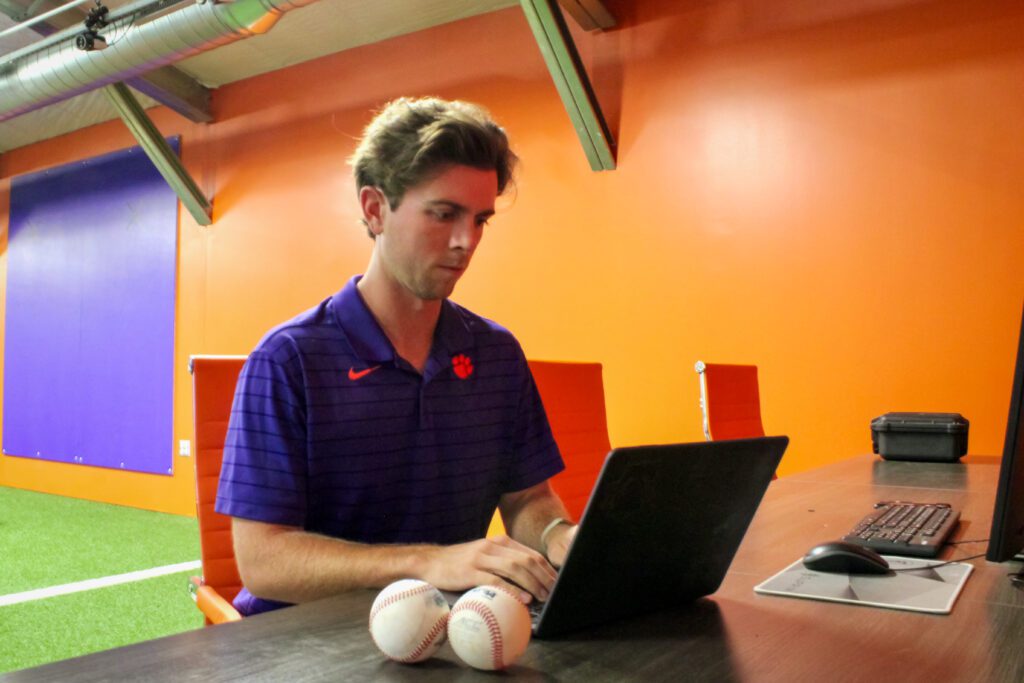
The analytics-driven team now consists of over 20 undergraduate students with different branches led by graduate students, working together to assist Clemson Baseball. Students in the program have interned with professional organizations like the Atlanta Braves and Houston Astros.
“Watching that turn into an entire pipeline where new students come in and bring new ideas that turn into new subgroups that invite even more students has been really cool,” Moore said. “I just feel like we’ve done something good for the University and for students here.”
One of the group’s most significant accomplishments was the development of an app that allows for automated scouting reports. Previously, generating these reports would take an exceptional amount of time because the information had to be input manually.
“I think it’s really cool because the only reason that was possible was because we put students in a position to lead that,” Moore said. “Jason and I may have thought of it with a lot more time, but we couldn’t have implemented it. So it was a good reflection on how we built the group and what we allowed students to do.”
Additionally, Moore is the founder of Human RITHM, a data infrastructure company striving to set a new standard for human performance research by developing algorithms tailored to the needs of the people using them. Human RITHM’s services include data infrastructure support, algorithm development, human performance insights and formal research reporting for its clients.
Post-grad, Moore is motivated to continue leading collaborations between athletics and academics.
“I think the more bright minds you put together and the more student engagement you can create, the better your outcomes tend to become,” Moore said. “I’m most proud of what the baseball group has been, and I feel like that was done with the help of Jason, Shane [Bernhardson] and obviously lots of student engagement. So being able to lead something like that in a formal capacity would be awesome in my future career.”
Clemson Olympic Sport Science is seeking baseball and softball analytics interns for upcoming semesters. Click here to apply.
